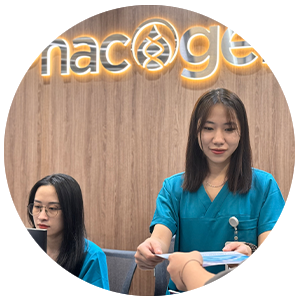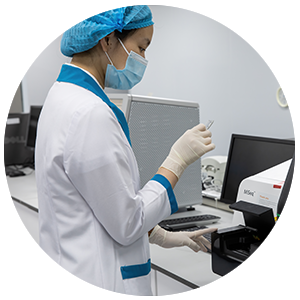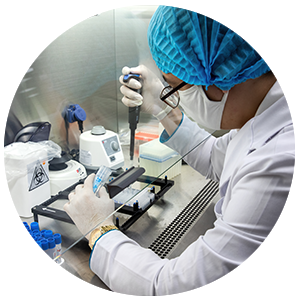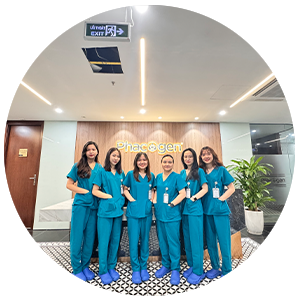Ngày 10/8/2025, Viện Công nghệ Phacogen đã tổ chức thành công hội thảo khoa học “Giải trình tự gen tự động Genexus CE-IVD trong ứng dụng lâm sàng”, quy tụ các chuyên gia, bác sĩ và KOL ung bướu từ khắp ba miền. Sự kiện đánh dấu bước tiến quan trọng trong việc đưa công nghệ giải trình tự gen tự động thế hệ mới vào thực tiễn y tế Việt Nam.
Genexus CE-IVD – Giải pháp tự động hóa toàn diện trong giải trình tự gen
Tại hội thảo, các chuyên gia đánh giá Genexus CE-IVD là nền tảng công nghệ then chốt, nổi bật với quy trình hoàn toàn tự động – từ xử lý DNA đến tạo báo cáo lâm sàng. Giải pháp này giúp:
.
- Rút ngắn đáng kể thời gian trả kết quả so với các phương pháp truyền thống.
- Đơn giản hóa quy trình vận hành phòng xét nghiệm, phù hợp với thực tiễn tại Việt Nam.
- Thiết kế linh hoạt, không yêu cầu gom nhiều mẫu trong mỗi lần chạy, tối ưu hóa tốc độ và nguồn lực.
.
Những ưu điểm vượt trội này mang lại lợi thế rõ rệt cho môi trường xét nghiệm lâm sàng, nơi tính kịp thời và hiệu quả là yếu tố quan trọng hàng đầu.
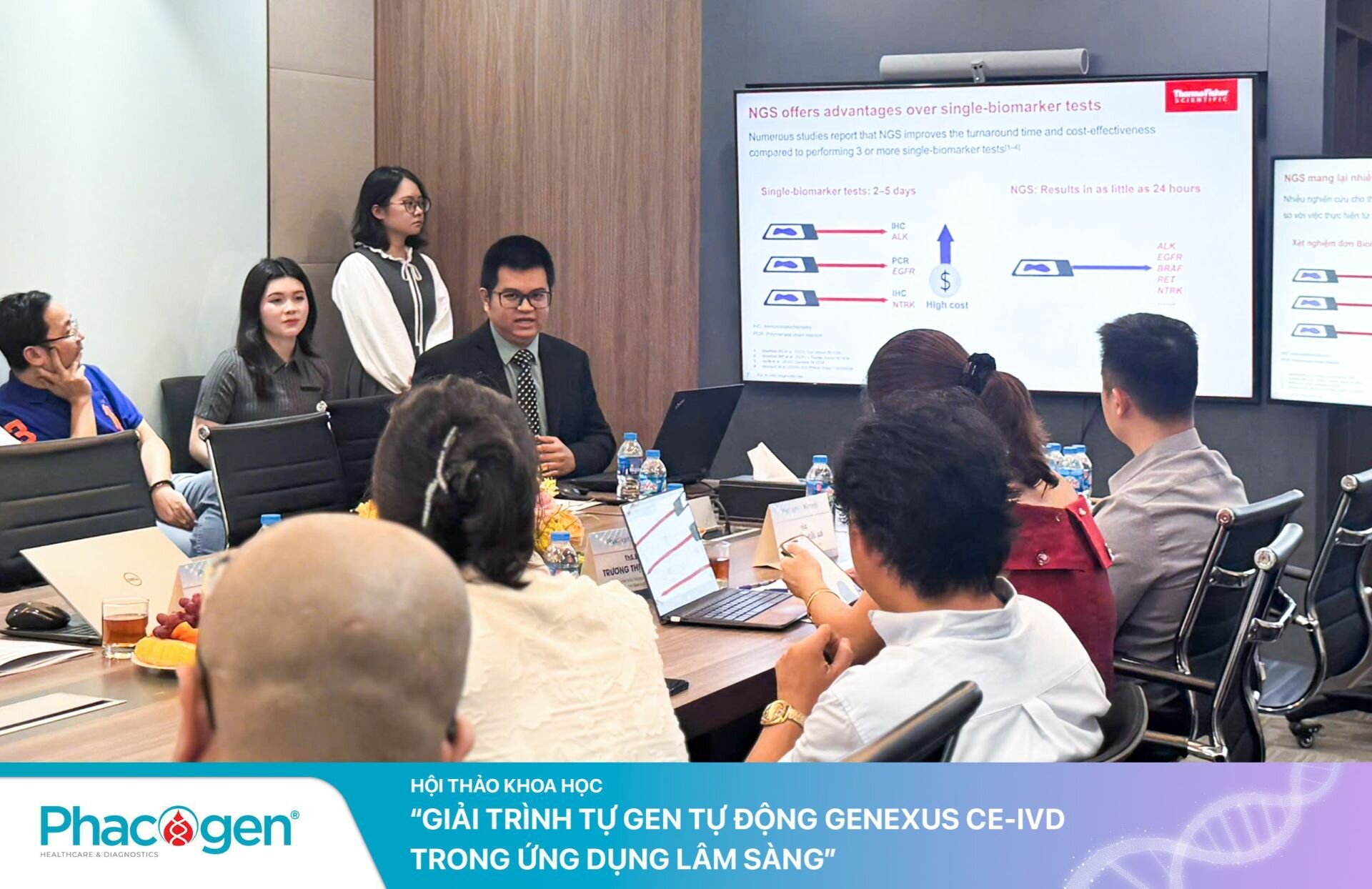
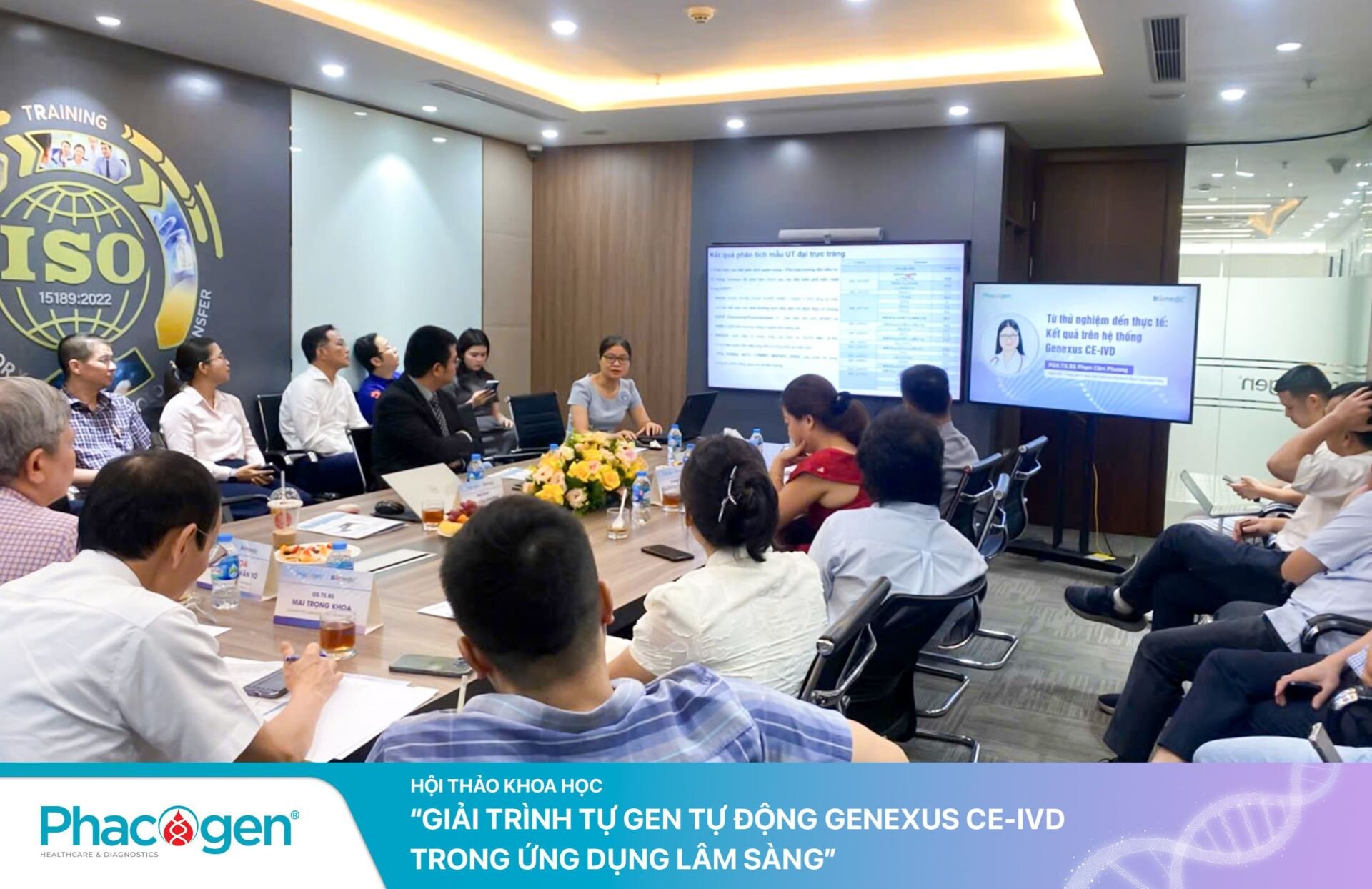
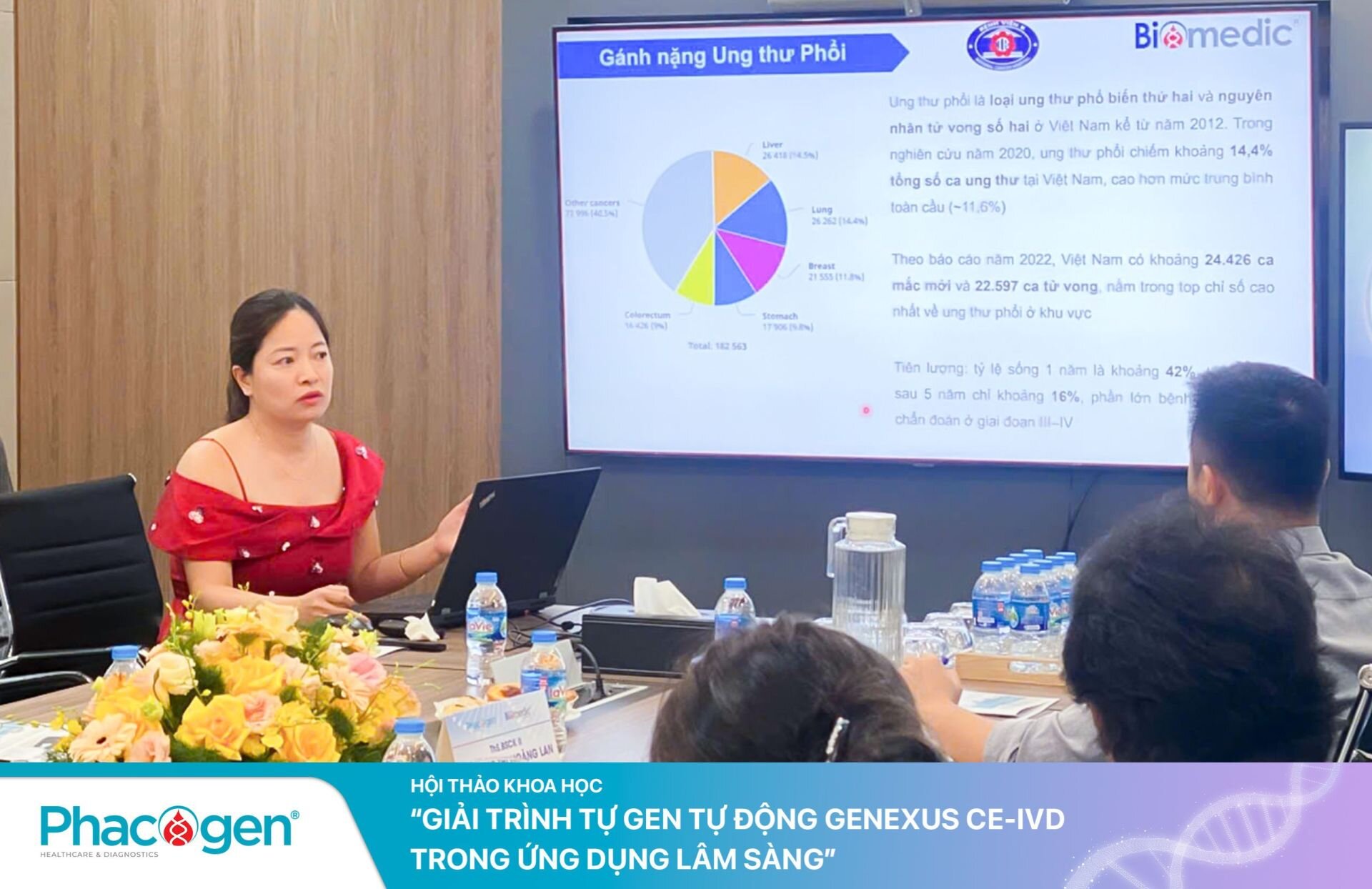
Oncomine – Hỗ trợ bác sĩ trong điều trị trúng đích
Bên cạnh Genexus CE-IVD, đại diện Phacogen cũng giới thiệu Oncomine – giải pháp xét nghiệm giải trình tự gen thế hệ mới (NGS) trên nền tảng Genexus Dx. Oncomine cho phép:
.
- Phân tích toàn diện đột biến gen ung thư.
- Hỗ trợ bác sĩ xây dựng phác đồ điều trị trúng đích.
- Rút ngắn thời gian chẩn đoán, đồng thời tiết kiệm chi phí cho bệnh nhân.


Thảo luận chuyên sâu và trải nghiệm thực tế
Hội thảo không chỉ dừng lại ở phần giới thiệu công nghệ, mà còn mang đến nhiều hoạt động tương tác giá trị:
.
+ Phiên thảo luận chuyên sâu: Những câu hỏi “nóng” từ các đại biểu về tính khả thi và hiệu quả triển khai Genexus Dx tại Việt Nam đã được giải đáp trực tiếp bởi chuyên gia Thermo Fisher Scientific, các bác sĩ đầu ngành và đội ngũ Phacogen.
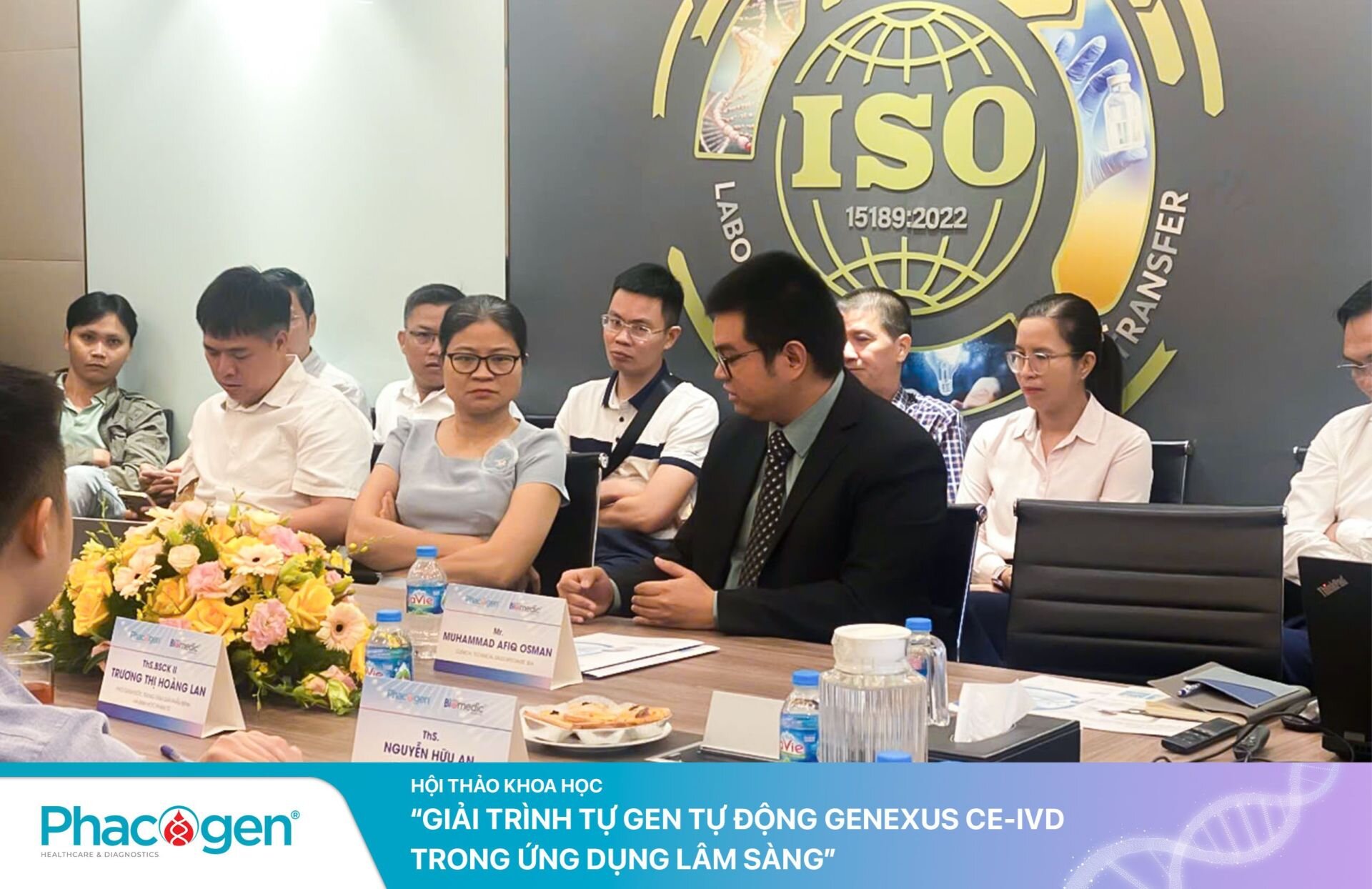

.
+ Trải nghiệm phòng lab Phacogen: Đại biểu được trực tiếp quan sát hệ thống Genexus Dx vận hành, hình dung rõ ràng về toàn bộ quy trình tự động hóa “từ mẫu đến báo cáo”.
Ý nghĩa của sự kiện
Sự kiện lần này không chỉ mang đến kiến thức chuyên môn cập nhật về công nghệ gen, mà còn tạo nền tảng kết nối, hợp tác giữa các chuyên gia trong và ngoài nước. Đây là bước khởi đầu quan trọng, mở ra nhiều cơ hội mới trong nghiên cứu và ứng dụng giải trình tự gen tại Việt Nam, góp phần thúc đẩy y học chính xác và nâng cao chất lượng điều trị cho bệnh nhân.

